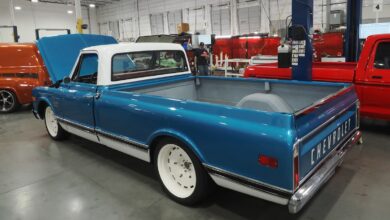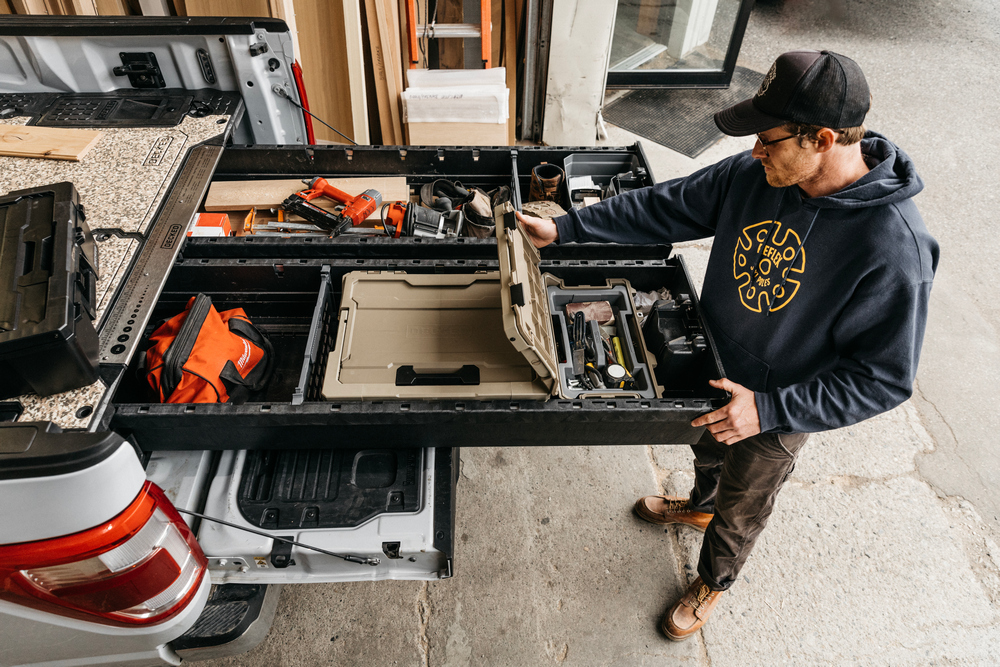
This article originally appeared in the February 2024 issue of THE SHOP magazine.
We’ve all got business to attend to—especially customers who use their vehicles to get work done for commercial projects.
Your shop can connect with these loyal repeat clients by offering the knowledge, products and service they need to make their own companies successful. Whether it’s a complete cargo storage solution for a Sprinter-type van or racks and seat protectors for a full-size pickup, there are plenty of aftermarket solutions to take care of business for any work vehicle owner.
To help sort through it all, industry suppliers offer tips on partnering with these local business owners and fleet managers, new products to investigate and potential problems to avoid so you can get your own work done with commercial clients.
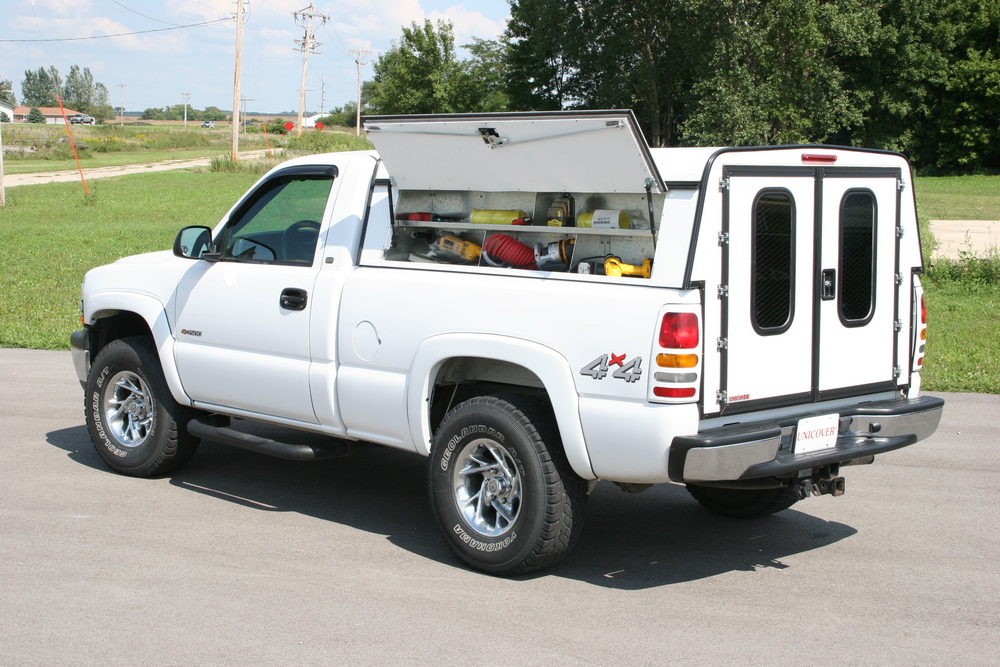
DOWN TO BUSINESS
If small businesses are the backbone of the economy, it makes sense that economic trends will trickle down to work vehicle customers.
“Over the past few years, many different segments of the fleet industry have been affected by the overall economic status, tightened supply chain, raw material disruption and truck availability,” says Dustan Menz, national fleet sales manager for LTA Manufacturing, maker of ATC fiberglass truck tops. “As things begin to normalize, LTA has become hyper-aware of potential disruptions, and we are prepared to react with our customers’ best interests at the forefront.”
Shops are also in dire need of competent, reliable employees to serve fleet customers, says Rachel Farrell, strategic partnerships manager for DECKED.
“It seems that no one knows where the labor pool went, but workers are not knocking on doors. Being unable to hire skilled and trained workers is a huge thorn in shop owners’ sides,” she says. “So many shop owners are spending more time installing products, spraying a liner, calling customers back or working Sundays to keep the ball moving down the field. We are all eager for the labor pool to fill back up.”
Being understaffed in a tight economy, it may be tempting to consider less-expensive, lower-quality product options—something Paul Elwell, national sales manager for Putco Inc., warns against.
“As with many segments of the automotive aftermarket, generic import products are having a major effect. Many entities are marketing low-end, untested and uncertified products to our market,” he says. “It is important for the shop and manufacturer alike to be the experts in this product space and seek to present the best possible solutions, such as our safety lighting, to our customers that are rated, covered by warranty, and carry a true and trusted brand name.”
Asked about the outside factors having the greatest impact on the market, Jeff Perez, director of business development for LUVERNE, notes: “Supply shortages, as well as a proliferation of electric commercial vehicles hitting the market.”
Another positive aspect of the industry is the tendency of most fleets to replace their vehicles at regular intervals.
“The introduction of a new truck design can significantly influence the work truck market by shaping customer preferences and driving innovation. Innovative features, enhanced performance and improved fuel efficiency in new designs may attract businesses seeking to upgrade their fleets for improved productivity and cost-effectiveness,” says Sara Ford marketing manager for TrailFX, noting shops will want to focus on carrying products for models with wide availability.
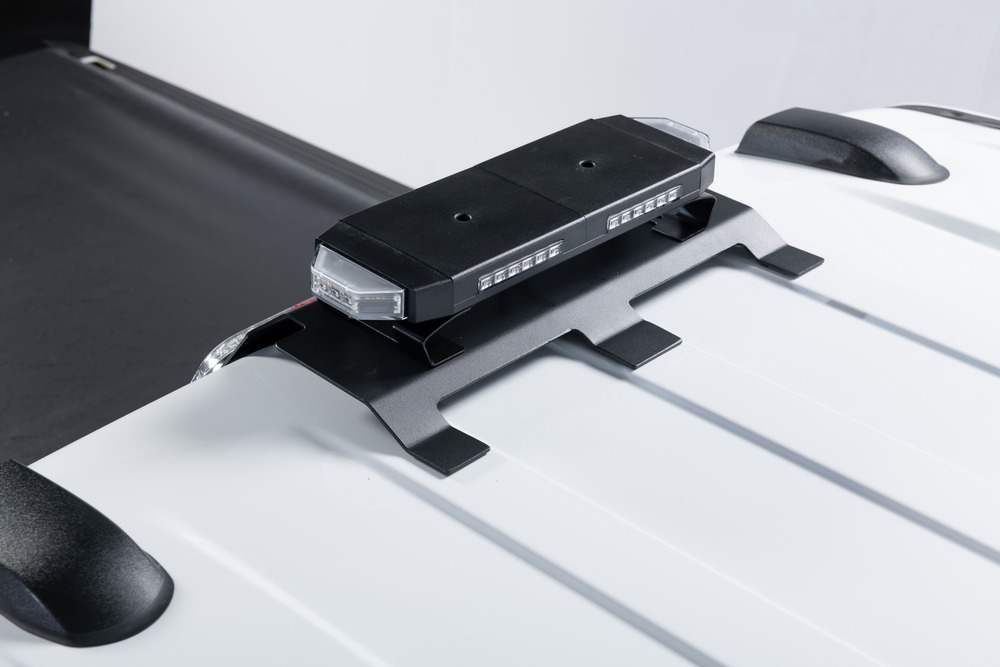
THINK LIKE A CUSTOMER
Work vehicle clients are often looking for products in a specific range regarding price and function. Asking the right questions will help businesses find the sweet spot for each project, Ford notes.
“Clear communication and a thorough understanding of customer needs are crucial for shops to provide tailored recommendations that genuinely address and fulfill their customers’ expectations,” she says. “When shops lack a comprehensive understanding of their customers’ wants and needs, there is a risk of recommending products that may not align with their requirements. This can lead to the suggestion of items with unnecessary features, or recommending products without all the benefits the customer could utilize, thereby lowering overall satisfaction.”
Successful shops will put each client’s needs first.
“Like most industries, mistakes are made when a company does not position their goals and direction through the mindset of their customer,” Menz notes.
That includes marketing strategies and fulfillment options, such as online ordering, that work with your customers’ needs and desires, notes Farrell.
“Not being adaptable to modern go-to-market strategies can hinder growth potential,” she explains. “We’ve found that our most successful shop partners are versatile and open-minded to today’s commerce environment.”
Meanwhile, Elwell cautions against the notion work vehicle customers simply want boring, utilitarian products.
“A mistake is retaining status-quo solutions and not seeking innovation for work truck customers,” he notes, referencing his company’s newly developed VIRTUAL Blade product line. “Like any consumer market, they are hungry for innovation, new looks and new applications. It is no different than the restyling, performance or accessory markets.”
Perez cautions against another temptation—trying to do it all when not fully understanding the market.
“When this happens, quality will tend to suffer,” he observes.
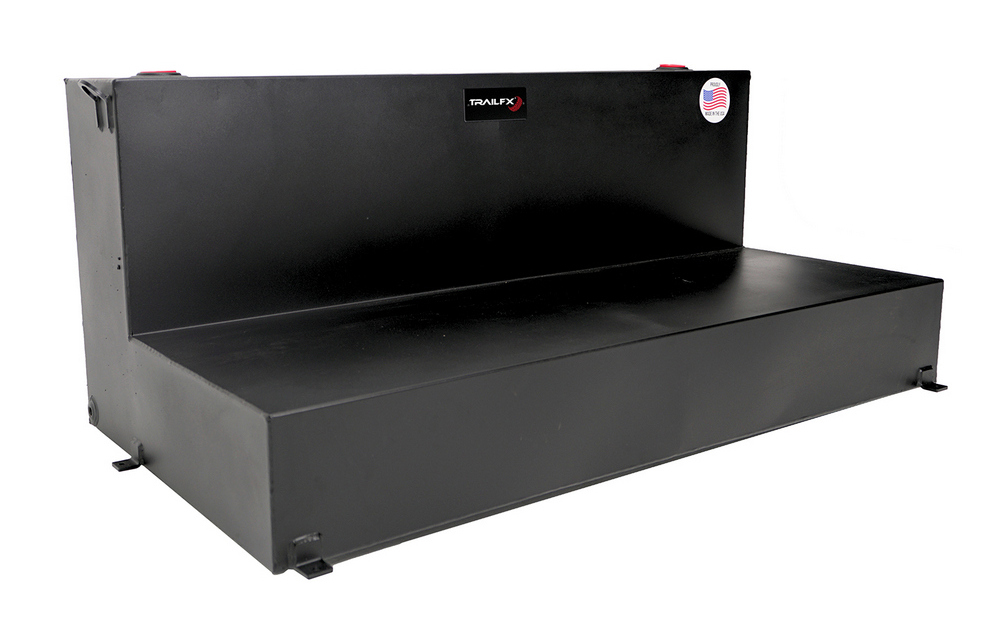
SHOPS THAT WORK
To stimulate sales, approach your business from a client’s perspective. Are you positioned to help them achieve their goals?
“When looking to increase or improve your fleet presence, it is always best to see your product and processes through the eye of the end user,” says Menz from LTA. “Understanding how your product will help a company become more efficient, and ultimately more successful, is the most effective way to grow.”
Take the mindset that there’s always something more to suggest, notes Putco’s Elwell.
“Most shops in our space already offer many of the products utilized by the work truck market,” he explains. “Diversification into safety lighting, as an example, is a great way to reach this customer type. It is far easier to integrate core product offering (tonneaus, steps, mats, etc.) once a shop has proven expertise in the work truck/fleet safety market.”
Ford from TrailFX suggests keeping an open mind about expanding your product array.
“A diverse inventory provides shops with the chance to upsell, offering customers a broader range of choices and educating them on various options available,” she says. “This proactive approach not only enhances customer satisfaction by meeting diverse needs but also positions the shop as a knowledgeable and adaptable source for clients seeking comprehensive solutions.”
Even non-traditional products and approaches make sense in certain instances, adds Farrell from DECKED.
“Leveraging the power of social media and digital advertising and focusing on shifting consumer trends may open new avenues of business. Is there something new that your customers may think of buying at their local hardware or lumber store? Bring it into your shop and test the waters. You might surprise yourself.”
You can also go looking for customers instead of waiting for them to find you, notes Perez from LUVERNE.
“Reach out to your local county, city and state fleet departments directly or visit their websites,” he suggests. “Another approach is to sign up for Bidnet Direct, which provides some work truck government bid opportunities.”




